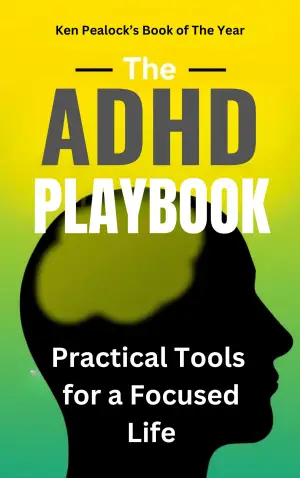Revisiting The Handmaid’s Tale: A Timeless Warning
When I first picked up The Handmaid’s Tale, I was drawn not just by Margaret Atwood’s masterful storytelling, but also by the chilling relevance of its themes in today’s world. It’s the kind of book that stays with you; it prompts reflection long after the last page is turned. In light of the current socio-political climate, it feels eerily prescient, reminding us of the delicate threads of freedom that can unravel with the swift stroke of a pen.
In Gilead, the dystopian world Atwood creates, we are introduced to Offred – a woman stripped of her identity, reduced to her function as a reproductive vessel. The oppressive regime not only renames her but also erases her former life, igniting a visceral exploration of autonomy and bodily sovereignty. As I navigated Offred’s harrowing journey, the parallels to our world became startlingly clear. With discussions around women’s rights and bodily autonomy gaining urgency, Atwood’s narrative felt like both a warning and a call to arms. The very idea that a woman’s worth could be confined to her ability to bear children isn’t just a fictional concept; it echoes today’s heated debates surrounding reproductive rights.
Atwood’s writing is a blend of lyrical prose and stark, jarring imagery. The pacing masterfully oscillates between moments of tension and quiet introspection. The juxtaposition of Offred’s memories of her pre-Gilead life with her current suppression creates a haunting sense of loss. At one moment, a simple act like shopping becomes a perilous adventure, and in the next, Offred reflects on lost friendships and the uncomplicated joys of her past. This contrast invites readers to feel the weight of her experiences deeply. Phrases like “Nolite te bastardes carborundorum” resonate not just as a crucial plot point but as a fierce rallying cry that echoes fully in the current landscape of women’s rights.
One of the most profound aspects of The Handmaid’s Tale is how it captures the complexities of hope and despair. Atwood doesn’t offer easy answers or simple resolutions; instead, she allows us to sit with the discomfort of Offred’s reality. The moments of rebellion, however small, serve as poignant reminders of resilience, leaving a lingering sense of both caution and optimism. With discussions ringing through today about the importance of elections and voting rights, it’s impossible not to reflect on the voices that are silenced and the power dynamics at play.
The Handmaid’s Tale is essential for anyone who cares about the future of freedom and autonomy, particularly for women. It’s a powerful prompt for readers to engage with the world around them and recognize how easily history can repeat itself. In a time rife with division, Atwood’s work implores us to recognize the value of our voices and the significance of our choices at the ballot box and beyond.
Reflecting on my journey with this book, I’m left with a renewed sense of urgency that perhaps we all need to take a page from Offred’s story. The past informs our present, but it is our actions today that will shape the future. As the world grapples with its realities, The Handmaid’s Tale stands as a crucial reminder that vigilance and action go hand in hand in the fight for our rights. Let’s ensure our voices echo louder than the oppressive forces lurking in the shadows.











